Community helps people stay happy and healthy as they get older. Friends and neighbours provide company, support, and a sense of belonging. Being around others keeps people from feeling lonely, which can hurt their health. Being part of a community encourages older adults to stay active, join group activities, and have a sense of purpose and a positive outlook on life. Communities can also help with daily tasks and provide resources and services. A strong community improves the quality of life as people age.
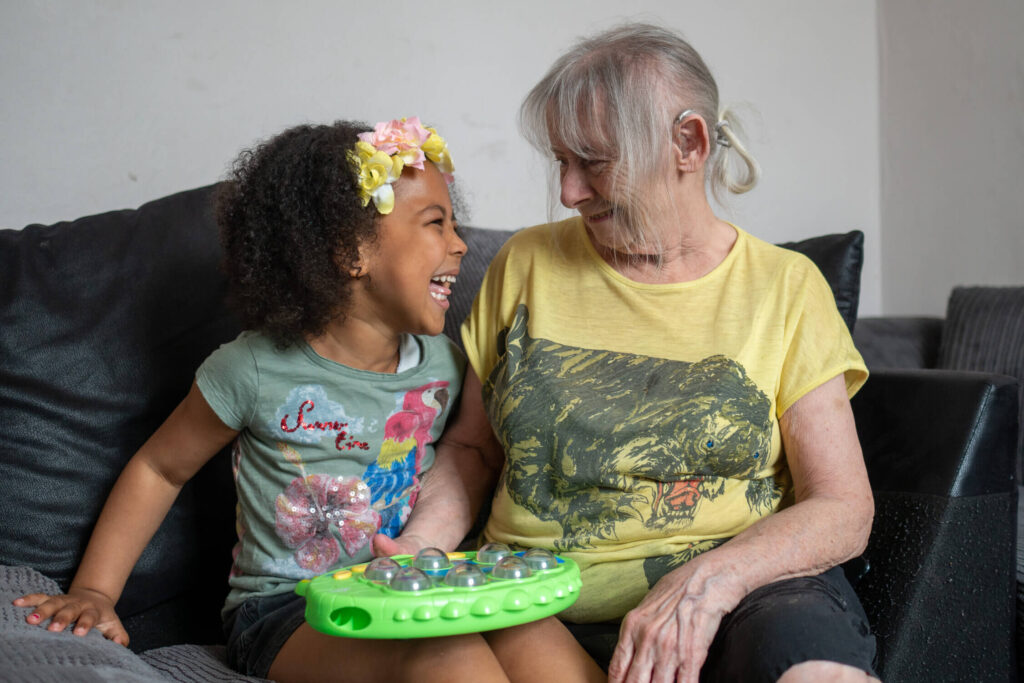
Community ideas are powerful because they focus on the culture and specific needs of an area. This makes the ideas relevant to the people who live there and more likely to work. Local activities are easy for everyone to join as they are close to home. This way, more people can benefit from healthy ageing resources and activities without having to travel far. Working together and taking ownership of healthy ageing initiatives makes them last longer and have a bigger impact on the community.
Many people find it more enjoyable to exercise when they are part of a group. Community activities provide a fun way to meet up regularly and exercise by doing something you enjoy without having to travel far!
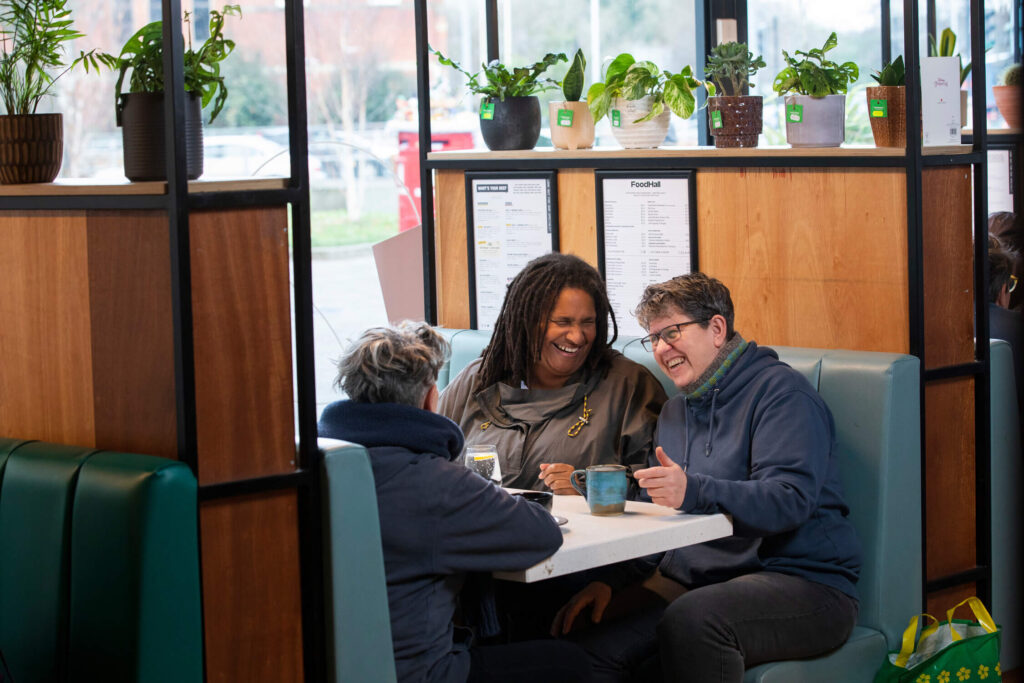
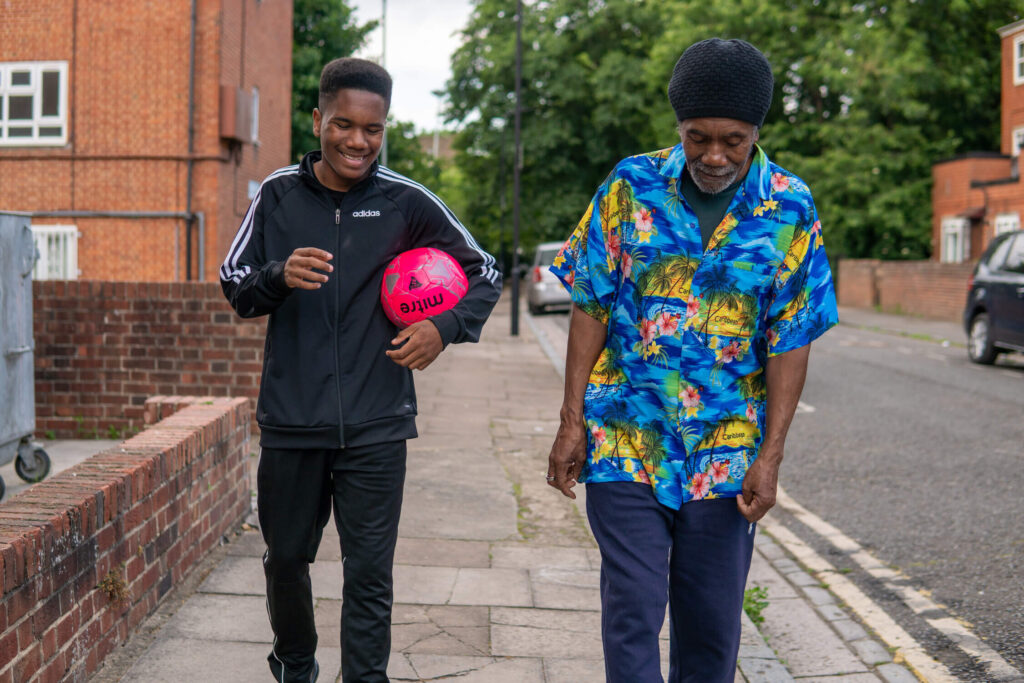
All of this sounds great, but what if there is nothing available in your area? Many people feel this way, and the good news is that a quick internet search may surprise you! If you feel a bit uncertain about joining a new group, ask a friend or relative if they would like to go with you. Many organisations, such as Age UK and Re-engage, run local activities for older people. You can also check out community websites, local religious groups, and Facebook community pages to find out what’s happening near you.
Nothing on that you’d like to try? Start a new club! Be the ambassador for healthy ageing in your area. Start a book club! Pack some sandwiches and go for a walk with friends. Why not open it up to anyone in your area who might like to join in? Take one of the ideas suggested above and run with it! Make it specific to you and your local community. Which would you like to see happening around you? Which would make the biggest impact? “Be the change you wish to see in the world.” And let’s choose our healthy ageing journeys together!
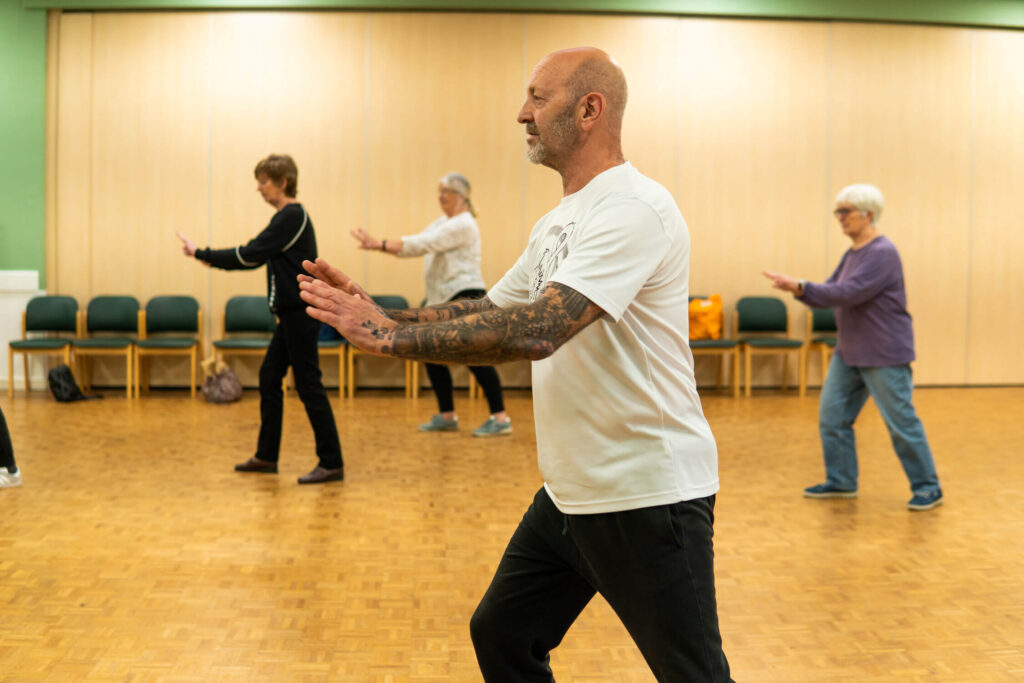
Fast food can be an easy and comforting part of life. We all know we should eat healthily. But sometimes we choose a takeaway because it's easy and fast. So, how about making the fast food healthier? That’s just what a community in Newcastle did. They swapped the salt shakers at their local fish and chips shop from a 17-holed lid to a 5-holed lid. This reduced the salt in every meal by 66%! This was a brilliant community-led idea. Small changes, made together, can have a big impact on our health and the health of our community.
Parkrun was another idea that began as a small community choice. Paul Sinton-Hewitt wanted to create a free, weekly event that anyone could participate in, regardless of their running ability. In 2004, on October 2nd, 13 runners took part in the first run in London's Bushy Park. They recorded times on a piece of paper and used some washers from their local hardware store for tokens! Since then, Parkrun has grown, first across the UK and then worldwide. It has evolved into the global Parkrun event that continues to bring people together for fun and fitness every Saturday morning. Paul wanted to promote fitness, community spirit, and inclusivity through a simple, accessible activity.
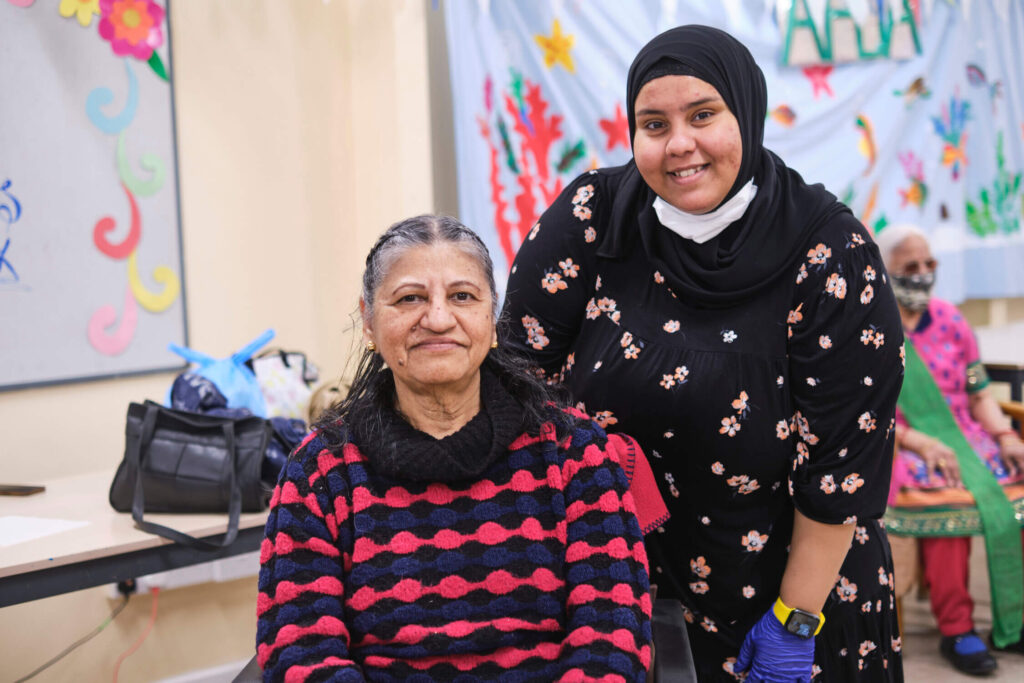
In the end, healthy ageing is going to be won by communities. Healthy ageing ideas that fit what you and your community need will have the greatest and longest-lasting impact.
Get in touch and let us know what would be of help in your area! Share your ideas and experiences with us, and let's inspire each other to make a difference in our communities at hello@thelifecurve.com.
No. Every person is different and can be happy with different amounts of social interaction. Some people may be comfortable with having lots of time in their own space, whereas others can be surrounded by people and start to feel lonely. The important difference is how you feel. It is important to recognise that lots of people feel lonely and that you are not alone. This is something we can change. If you are feeling lonely a lot, then there are things you can do to reach out and connect with others.
There can be a stigma around feeling lonely, but we need to change this. The World Health Organisation found that one in four older people feel lonely. The NHS reports that “more than a million older people say they go over a month without speaking to a friend, neighbour or family member.” If you are feeling lonely, it is important to know that you are not alone. This is something that so many people struggle with, and it is essential you are able to reach out to others for support. Many people may feel like this is a difficult thing to do or that they don’t want to bother other people or ask for help. But it is likely that a neighbour or a friend may be feeling the same way. If we all reach out and take small steps every day, we can make a huge improvement in not just our own lives but also the lives and happiness of others.
Becoming isolated from other people can happen for a variety of reasons, especially as we get older. We may have left work, live alone, or find it difficult to get out and about. It can be easy to feel lonely when things like this happen. But this can start to impact our health.
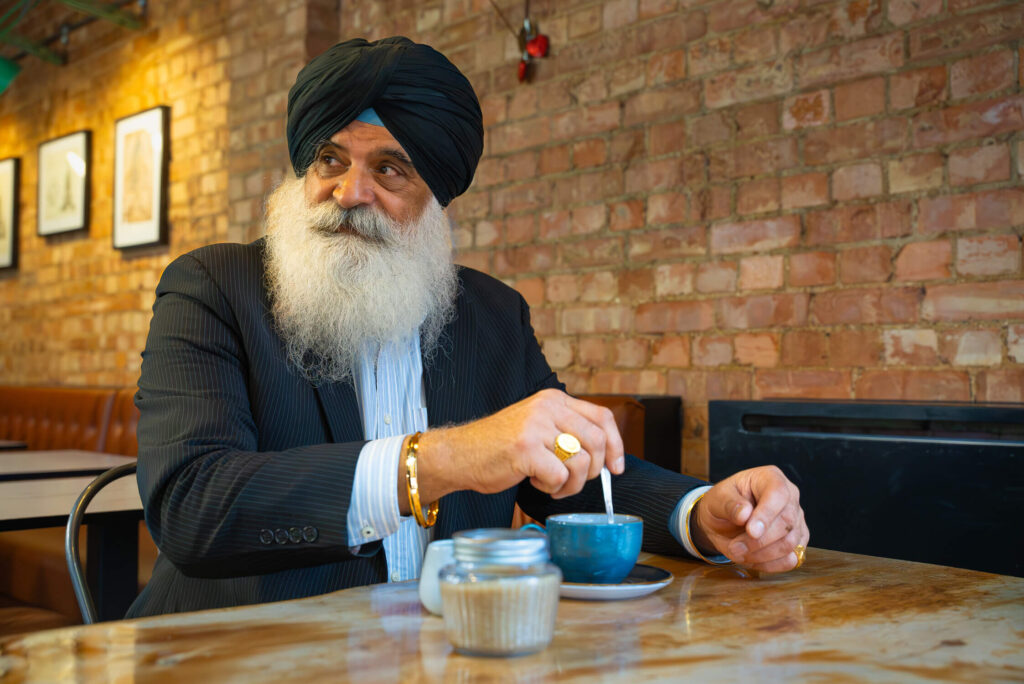
Did you know the World Health Organisation has recognised that loneliness is a serious threat to our health? Research has shown that it can impact the way we age, our physical and mental health and our quality of life. Feeling lonely is something we need to take seriously. It has been shown to be as bad for your health as smoking, obesity and lack of exercise.
Studies have shown that loneliness can be as bad for your physical health as smoking 15 cigarettes a day! This is because feeling lonely frequently or for long periods of time can lead to increased risk of other things which can affect your health, such as heart disease, stroke, anxiety and depression. Reaching out when we feel this way can be hard. That’s why we’ve come up with some things for you to try.
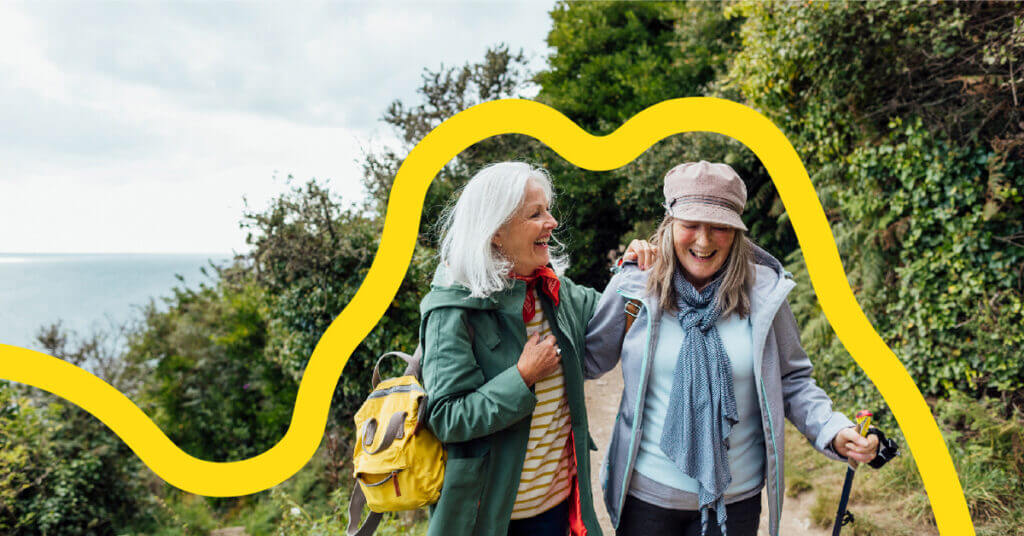
If you would like more information, Independent Age has put together a useful guide on what to do if you are feeling lonely and how to stay connected to others as we become older. You can download the guide here: https://www.independentage.org/sites/default/files/2016-11/Advice-Guide-If-youre-feeling-lonely.pdf.
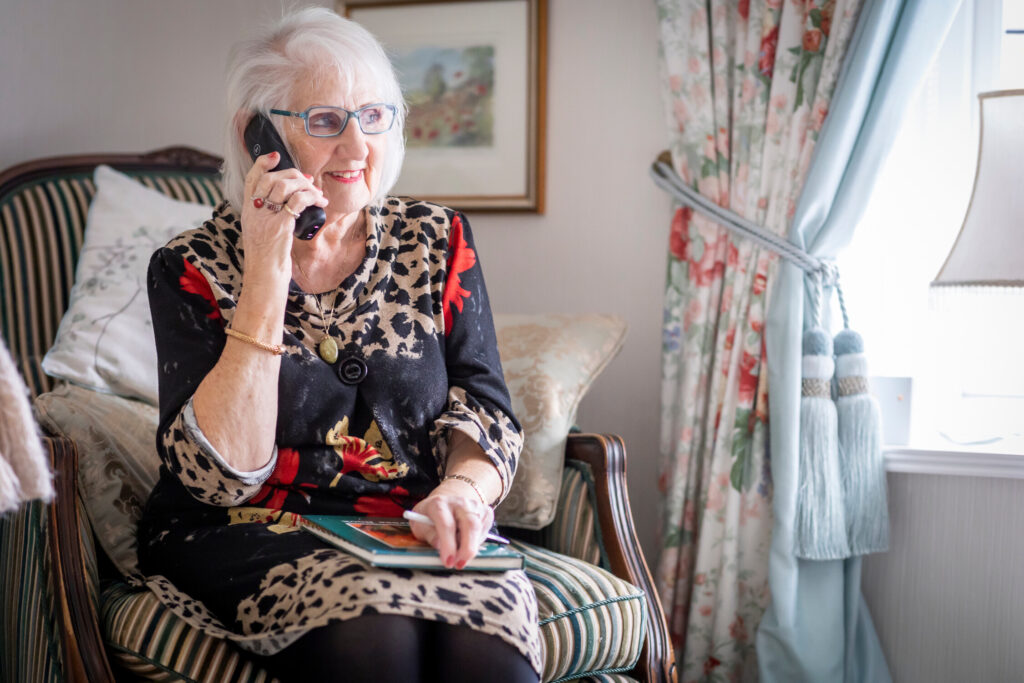
It is really important to have regular contact with people we value and have good quality interactions with. Feeling disconnected from others or being socially isolated can sometimes cause a faster decline in our ageing process. It can cause increased stress and reduce the amount of sleep you are getting which puts more pressure on your body. Good social connections are essential to our wellbeing. If you are feeling lonely, give our list of things to try a go. Getting out and about is really important as we get older. Plan to do things with your week that you will look forward to. Visit the cinema, a coffee shop, pop into a church service or go to the library. This is your life. Let’s fill it with things you enjoy!